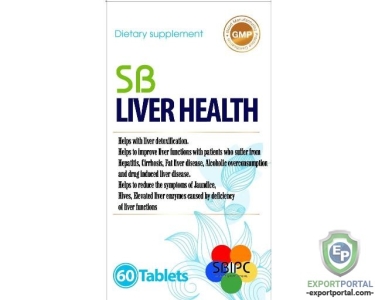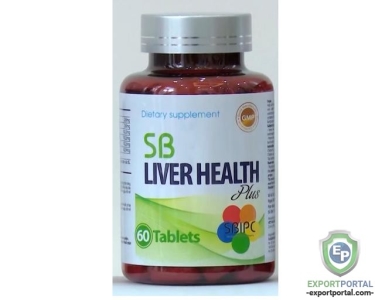Couldn't find the product you want?
Fill out this form to request the product.
Export from Vietnam
Vietnam has a developing planned economy and market economy. Vietnam has become a leading agricultural exporter and served as an attractive destination for foreign investment in Southeast Asia. In a similar fashion to other Communist countries after the end of the Cold War the planned economy of Vietnam lost the momentum for productivity and sustainable growth. In the current period the economy of Vietnam relies largely on foreign direct investment to attract the capital from overseas to support its continual economic rigorousness.
Manufacturing, information technology and high-tech industries now form a large and fast-growing part of the national economy. Though Vietnam is a relative newcomer to the oil industry, it is currently the third-largest oil producer in Southeast Asia.
Mobile phones and their parts were both imported and exported in large numbers, while in the natural resources market, crude oil was a top-ranking export and high levels of iron and steel were imported during this period.
As a result of several land reform measures, Vietnam has become a major exporter of agricultural products. It is now the world's largest producer of cashew nuts, with a one-third global share; the largest producer of black pepper, accounting for one-third of the world's market; and the second-largest rice exporter in the world, after Thailand. Vietnam is the world's second largest exporter of coffee. Other primary Vietnamese exports include tea, rubber, and fishery products.
In the last 5 years, Vietnam's exports have doubled as competitive minimum wage and low costs of utilities boosted foreign direct investment. Vietnam main exports are clothing and footwear, machinery, transports and equipment. Other exports of Vietnam include food, live animals, manufactured goods and fuel.
Main export partners of Vietnam are the United States, Japan, China, South Korea, Malaysia and Germany.
Import to Vietnam
Vietnam has been, for much of its history, a predominantly agricultural civilization based on wet rice cultivation. There is also an industry for Bauxite mining in Vietnam, an important material for the production of aluminum. However, the Vietnam War destroyed much of the country's agrarian economy, leading the post-war government to implement a planned economy to revitalize agriculture and industrialize the nation.
Vietnamese authorities have reaffirmed their commitment to economic modernization and a more open economy. Vietnam joined the World Trade Organization in January 2007, which has promoted more competitive, export-driven industries. Vietnam joined the 12-nation Trans-Pacific Partnership free trade agreement negotiations in 2010.
In 2014 the country negotiated a free trade agreement with the European Union which would give it access to the EU's Generalized System of Preferences, which provides preferential access to European markets for developing countries through reduced tariffs.
Vietnam main imports are machinery, transports and equipment, telephones, integrated circuits, iron, fabrics and manufactured goods. Other imports of Vietnam include chemicals, fuels, food and crude materials.
Main import partners of Vietnam are China, Korea, Japan, Taiwan, Thailand and Singapore.
We are happy to welcome you at Medical Herbs store at Export Portal. Your arsenal of home remedies is about to get a lot spicier with the best healing herbs that are presented here by the Medical Herbs sellers from all over the world. Discover the magical healing power of herb medicine. Herbal therapy has been known to mankind since the dawn of times and remains highly in demand still.
Though herbs have been used for hundreds of years to heal, scientists are finally starting to substantiate these plants' abilities to alleviate arthritis pain, reduce high blood sugar and cholesterol, and help with many other conditions. They're even discovering amazing new powers in the best healing herbs, such as the ability to kill cancer cells and help problem drinkers curb their alcohol intake.
We are proud to offer the finest line of pharmacy supplies and medicinal herbs for sale for you and your family!
Herbal plants have been used for centuries to cure all sorts of ailments. And, even though modern medicine has improved our lives considerably, both modern medicine and alternative medicine still rely on the age-old healing properties found in medicinal herbs. Scientists and modern herbologists affirm that herbs and other natural remedies can be as effective as traditional treatments, often without the same negative side effects. That's amazing and shouldn't be overlooked!
The use of medicinal plants is increasing worldwide, related to the persistence and sometimes expansion of traditional medicine and a growing interest in herbal treatments. Chemical compounds in plants mediate their effect on the human body through processes identical to those already well understood for the chemical compounds in conventional drugs; thus herbal medicines do not differ greatly from conventional drugs in terms of how they work. This enables herbal medicines to be as effective as conventional medicines, but also gives them the same potential to cause harmful side effects.
Use our herbs for wound healing, liver healing herbs, organic herbal remedies, ayurvedic medicinal plants, find local herbs and spices online, discover herbs for stress and natural herbs for anxiety to help you through difficult periods of life, Chinese healing herbs, Asian herbs - the best medicinal plants, herbal remedy for colds, English herbs, African medicinal herbs, Australian bush flowers, healing herbs and spices from all the world's ends, bach flower remedies for pets, arthritis herbal remedies, homeopathic remedies known for centuries, chicory bach, all the best alternative medicine herbs!
You will be impressed with the healing power of herbs if used correctly! Buy Chinese herbs widely used In alternative therapy, herb tea - tasty and healthy ingredient. Find only the best natural herbal product suppliers to provide medicinal herbs for you!
Customs requirements of Vietnam
Vietnam Customs Contacts
General Department of Vietnam Customs
Website: http://www.customs.gov.vn/Home.aspx?language=en-US
Email: webmaster@customs.gov.vn
Address: Block E3 - Duong Dinh Nghe street, Yen Hoa, Cau Giay, Hanoi, Vietnam
Phone: (+844) 39440833 (ext: 8623)
Vietnam is the easternmost country situated on the Indochina Peninsula in Southeast Asia, bordered by China, Laos, Cambodia and Malaysia across the South China Sea. Vietnam is a member of the Asia-Pacific Economic Cooperation (APEC), Association of Southeast Asian Nations (ASEAN), International Monetary Fund (IMF), World Customs Organization, World Trade Organization and other international organizations.
Tariffs
Tariffs and duty rates are frequently revised and the tariffs levied are decreasing in line with the country’s WTO commitments.
Surtaxes can be levied in exceptional cases, such as countervailing duties as anti-dumping measure.
Vietnam has issued over 5000 product standards, many of which are in accordance with international standards. Specific information can be provided by import partners or may be sought from the relevant ministry or authority or from the Directorate for Standards and Quality (STAMEQ) under the Ministry of Science, Technology and Environment.
Non-tariff barriers
The following goods are prohibited from import into Vietnam:
- weapons, ammunition and explosive materials (except industrial explosives), military technical equipment; certain firecrackers
- second hand consumer goods, including:
- textiles and garments, shoes and sandals, clothing
- electronics
- appliances e.g. refrigerator
- medical apparatuses
- furniture and interior decoration
- household goods made of porcelain, terracotta and china, glass, metal, resin, rubber, plastics
- motors and certain vehicle parts
- bicycles
- ambulances
- two and three wheeled motor vehicles
- cultural products prohibited from dissemination and circulation in Vietnam; radio equipment inconsistent with Vietnamese radio frequency planning or technical regulations
- vehicles from which the frame or engine number has been removed or designed for driving on the left
- chemical listed in Appendix III of the Rotterdam Convention and other toxic chemicals and pesticides, plus products containing asbestos or Chlorofluorocarbon (CFC) waste and scrap.
The following goods are prohibited from export out of Vietnam:
- weapons, ammunition, explosive materials (except industrial explosives) and military technical equipment
- national relics and antiques; cultural products in the category prohibited from dissemination and circulation in Vietnam
- round timber and sawn timber produced from domestic natural forests; rare and precious wild fauna and flora
- equipment used for the encryption of national secrets
- type one toxic chemicals stipulated in the Treaty Prohibiting Chemical Weapons and in Annex III of the Law on chemicals and its Decrees.
Import/export in Free Trade Zones
Companies may choose to produce within an Export Processing Zone (EPZ) in order to take advantage of the exemptions from customs duties. Industrial Parks (IPs) offer various support services as well as tax advantages. The specific incentives and support measures that are available vary across individual EPZs and Ips.
Special certificates
Health certificates are required to import plant and animal products. Live animals require certificates attesting that they are free of communicable diseases. Pharmaceutical products must be registered and approved by the Ministry of Health. All imported foodstuff for consumption in Vietnam requires a Certificate of Analysis.
Methods of quoting and payment
The most common method of payment for import transactions into Vietnam is Confirmed Letter of Credit. Distributors will typically ask for between 30 and 180 days payment terms.
Documentary requirements
Circular No. 128/2013/TT-BTC, guides import and export procedures. Several copies of documents can be required to complete the import procedures. The necessity of translations into Vietnamese can be specified in the import contract. Originals should be signed with blue or red, but not black ink.
A certificate of inspection or documentation confirming exemptions from inspection, as well as an import licence are required for certain types of goods. E-customs declarations are possible and welcome.
Required documents for import:
Pro-forma invoice
Include the same type of information as a commercial invoice.
Commercial invoice
Vietnamese foreign trading organisations usually require the following information to be contained on the commercial invoice:
- a complete description of the goods
- product codes and serial numbers (if applicable)
- invoice number(s)
- number of items or containers
- net and gross weights
- net value which must be close to the market price
- the country of origin
Bill of lading
Importer’s instructions should be followed and all information must conform with other shipping documents.
Packing list
Use of a packing list is recommended even if not specifically required by the import contract.
Certificate of insurance
Having obtained insurance coverage for a shipment, a copy of the insurance certificate or insurance policy should be included in the import dossier.
Insurance
Loss or damage of a shipment is possible in the form of cargo insurance or of a contingency insurance clause.
Sources:
http://www.vietnam-briefing.com/news/customs-procedures-in-vietnam.html/
http://vietnamembassy-usa.org/basic-page/custom-regulations

